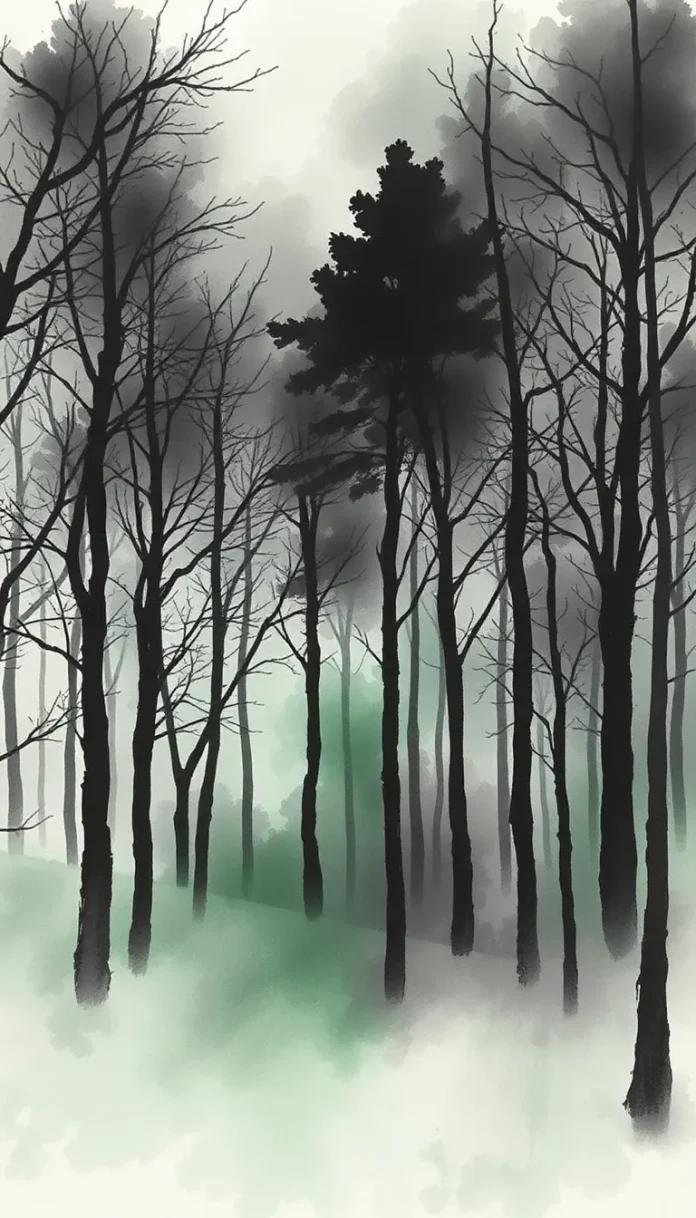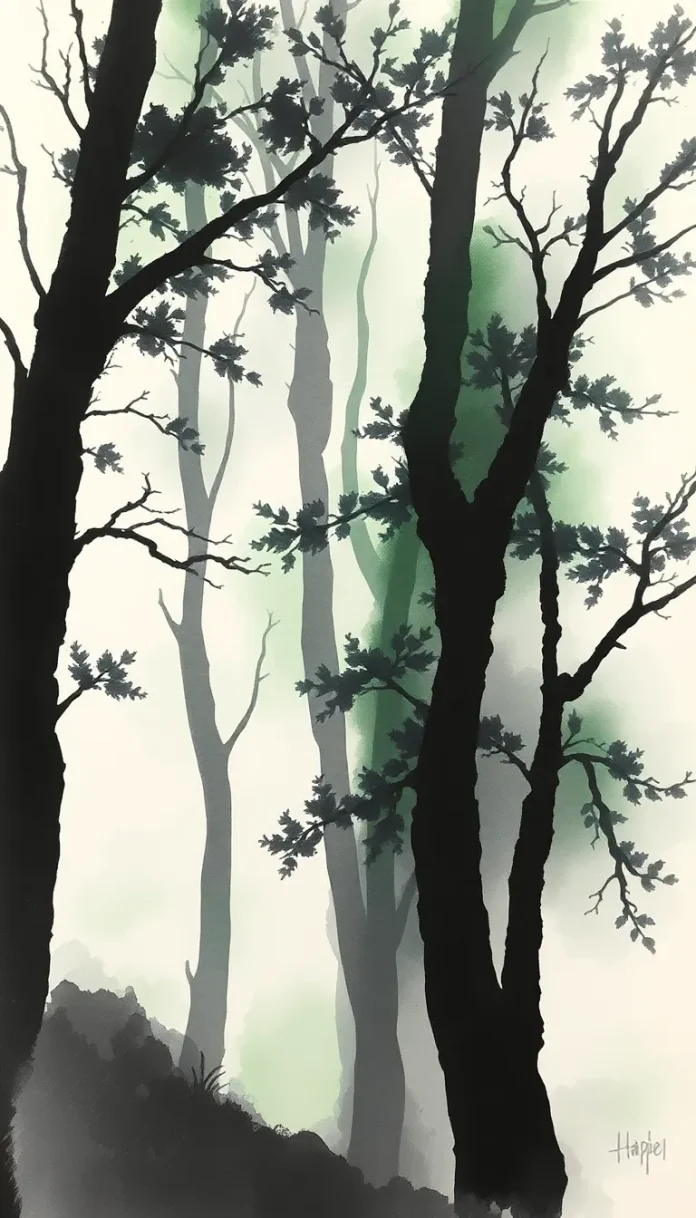The Tempest’s Canvas
A painter stood, his soul adrift, upon a cliff of stone.
The sea, a ravenous Titan, roared with frothing might,
Its jaws agape to swallow stars that trembled in the night.
His name was Edmund, young of hand but ancient in his eyes,
A seeker of the fleeting light that on the water lies.
For years he chased the whispers of the waves’ elusive song,
To trap their wild ephemeral grace where pigments might belong.
Yet lo! The muse, a fickle wraith, had fled his weary brush,
Leaving but hollow echoes in the twilight’s spectral hush.
“O heartless Deep,” he cried, “reveal thy veiled, tempestuous face!
Or let me drown within thy gloom, a wretch without a trace.”
The wind replied with venom, lashing salt upon his cheek,
As thunderclaps like funeral drums did through the heavens speak.
But as he turned, despairing, toward the path that led him home,
A figure, slight and shimmering, emerged from ocean’s foam.
’Twas Clara, lighthouse keeper’s child, with hair like midnight’s sigh,
Her voice a silver tremor ’neath the wrathful, brooding sky.
“Dear Edmund,” spake she softly, “the storm shall feast anon—
The tides conspire with violence; come, I beg, withdraw!”
He gazed upon her pallor, where dread and love entwined,
Yet still the siren seaward call ensnared his restless mind.
“One hour more,” he pled, “to seize this chaos, wild and free—
The canvas thirsts for lifeblood… and it beckons only me.”
Her eyes, twin pools of sorrow, brimmed with tears unshed,
For she had known the painter’s heart, to art and anguish wed.
“Then take my hand,” she whispered, “and let me bear your light,
Lest darkness claim the fragile spark that guides you through the night.”
But Edmund, blind to portents, kissed her brow with fleeting breath,
“Stay not, sweet Clara—seek the hearth! I dance with shadows, Death.”
She fled, her shawl a phantom’s wing, toward the beacon’s glare,
While he, enraptured, faced the squall, and drowned in salty air.
The tempest swelled, a monstrous hymn, as Edmund’s brush took flight,
Each stroke a duel with chaos, each hue a shard of night.
Cobalt veins of lightning scarred the canvas, vast and grim,
While ochre claws of seaspray tore the edges, frayed and dim.
Yet in the maelstrom’s crucible, a vision raw emerged:
The sea, not as destroyer, but as anguish—blood-surged,
A writhing, living testament to beauty born of pain,
A hymn to those who grasp at dreams though shackled by the chain.
But hark! A distant tolling bell—the lighthouse lantern died,
Its golden eye extinguished where the cliffs met raging tide.
No beam to pierce the tempest’s veil, no solace for the lost,
As ships, like doomed and splintered moths, toward jagged rocks were tossed.
Then Edmund saw her—Clara—on the blackened, wave-lashed spire,
Her arms outstretched, a mortal shield against the ocean’s ire.
She climbed the tower, frail yet fierce, with oil-lamp clutched in hand,
To reignite the guardian flame and spare the foundering band.
“No!” roared the painter, horror-struck, his masterpiece abandoned,
As toward the cliff’s cruel precipice he ran, by anguish manned.
The skies, unyielding, laughed in bolts of livid, crackling scorn,
While Clara, mid the tempest’s maw, lit hope’s ephemeral horn.
The lamp blazed bright—a tiny sun against the ravening deep—
And ships, like phantoms, veered away from Death’s unyielding sweep.
Yet as she raised her beacon high, a wave, mountain-born,
Engulfed the tower, flesh, and stone—and left but endless morn.
Day broke, a thief of shadows, on a shore both still and stark,
Where Edmund knelt, a broken shell, beside his lifeless ark.
The canvas, drenched in salt and rue, bore Clara’s final trace—
Her face, a spectral wisp amid the sea’s eternal race.
He’d painted, in his madness, what the fates had willed to pass:
Her hands, outstretched in sacrifice, behind the storm’s cracked glass.
The critics praised the masterpiece, its grief-soaked, wild allure,
Yet none could see the truth within—the love no brush could cure.
Now Edmund walks the headland, where the gulls scream Clara’s name,
His palette stained with memory, his heart a vault of shame.
For art, like life, is rendered in the hues we dare to spill,
And every stroke of brilliance hides a void no light can fill.
The sea, it sings her requiem in tones of blue and gray,
While on his easel, year by year, her ghost dissolves away—
A testament to beauty bought with love’s exsanguined toll,
And how the brightest masterpieces feed the darkest soul.


